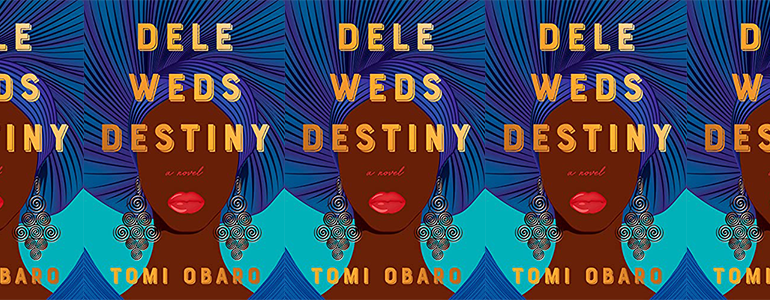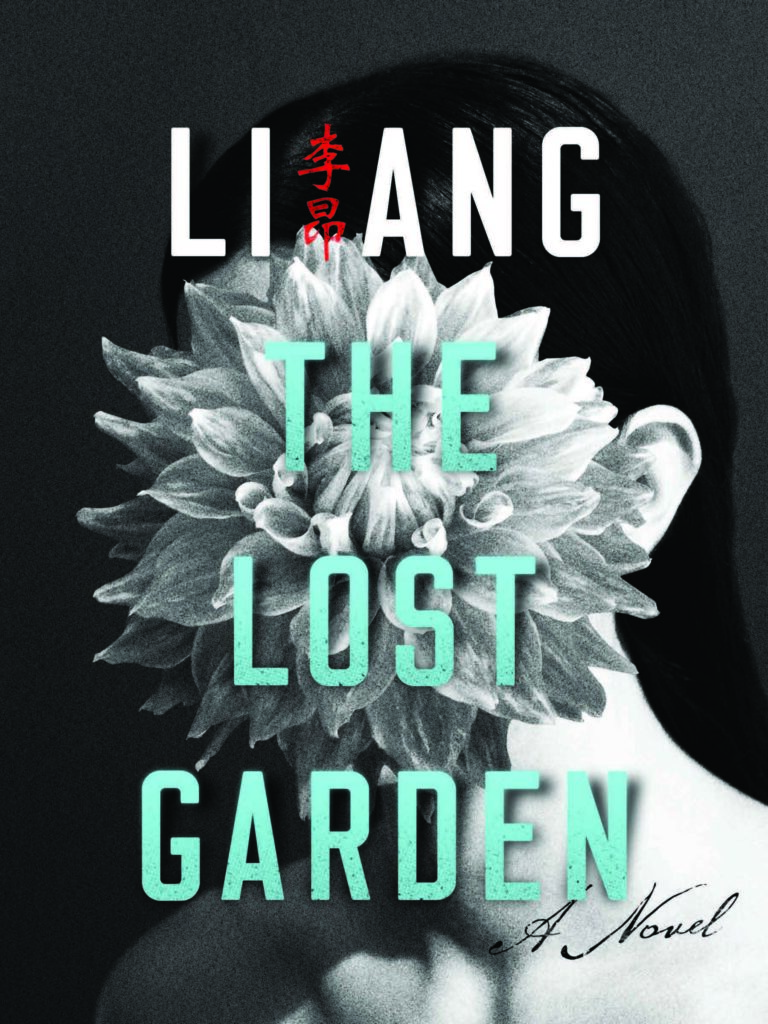A Place to Call Home in Dele Weds Destiny

Dele Weds Destiny
Tomi Obaro
Knopf | June 28, 2022
Tomi Obaro’s debut novel, Dele Weds Destiny, follows three young Nigerian friends—Funmi, Enitan, and Zainab—who face many unexpected turns in their post-college lives, and explores how their friendships see them through this turbulence. “These three women are essentially sisters,” the narrator says. “And though their unexpected separation so shortly after graduation tests their friendship, they remain steadfastly in each other’s lives.” Told from each friend’s perspectives, Dele Weds Destiny is about the power of women’s friendships and the efforts women undertake to sustain these relationships.
What fuels their friendships? Their love, support, and sisterhood to each other. In college, they rallied around Zainab, the arty and rich friend, when she wanted to get married right after graduation, despite her father’s protests. When Funmi, the bombastic, yet deeply loving member of the friend group, loses her boyfriend, they stood by her side, despite Funmi’s bravado and claims of not needing support. Thirty years later, they are still friends, steadfast in their commitment to staying connected, and when Funmi invites Enitan and Zainab to attend her daughter Destiny’s wedding in Lagos, Nigeria, they both put a pause on their fraught personal lives to attend.
Destiny’s wedding brings the trio together for the first time in many years. Now, they are middle-aged with families of their own, with a lot more support, but they are lonely as they navigate this new stage of their lives alone. Enitan, who is the peacekeeper of this friendship group, is recently separated, and she’s living alone for the first time in Queens, New York. She flies to Nigeria with her teenage daughter. Here, the novel expands to explore not only female friendship but the complex relationships between mothers and daughters.
The mothers, Funmi and Enitan, and daughters, Destiny and Remi, all want the same thing: to be seen, to be given the room to define their lives on their own terms, but they are unable to provide this to each other. When Destiny confides in her mother that she was “feeling a little overwhelmed” with the wedding because “everything is happening so quickly,” Funmi refuses to see Destiny’s vulnerability as a source of malcontent, and she quickly said, “You are just tired.” While Funmi and Enitan are able to extend understanding and patience to each other, they are unable to shift this tolerance to their daughters. At times, the novel fails to explore Funmi and Destiny’s dynamic fully, resorting to the stereotypical relationship strains between mothers and daughters.
There is, however, an attempt to have a different conversation about mother and daughter duos between Remi and her mother Enitan’s relationship. Their trip was Remi’s first to Nigeria, and the continent of Africa. Within hours of landing, Remi, a self-proclaimed liberal, starts making assessments about Nigeria’s government, culture, and widespread poverty. Remi, who is biracial, uses a very white America lens to view and interact with Africa. In fact, Remi’s “thoroughly American”-opinionated, grand sweeping statements and privilege is a source of discontent for Enitan, who deep down still sees herself as an immigrant after living in America for over twenty years. “Everything in Nigeria seemed comparatively cruel to liberal Americans who loved to act as if America was also not capable of cruelty and disregard,” Enitan muses when confronted with Remi’s eurocentrism. Enitan and her daughter’s cultural, racial, and educational divergence allows for an intellectual and elaborative conversation about the difference in experience between mothers and daughters.
Tomi and many emerging African writers are brilliantly writing away from the colonial framework where European imperialism and its aftermath was at the center of their novel’s plot. In Dele Weds Destiny, Tomi sneaks in history—the 1980’s anti-government student riots in Nigeria and the collapse of Nigeria’s economy due to austerity measures—for readers to gain a conceptual understanding of Nigeria’s perils and strength, but she doesn’t allow it to dominate the narrative. Hence, the main characters’ lives are not haunted by history and other social calamities. This is evident inside Dele and Destiny’s lush wedding venue. There are vases of flowers on each table, votive candles displayed everywhere, and “a purple love seat with tufted cushions stood center stage while a mountain of token gifts for the dowry…were perched in one corner…And in the shadows, standing near the gifts, was a bored-looking security guard, his AK-47 casually slung over his shoulder.” For many American readers, a security guard at a wedding might seem out of place, but according to Enitan, “Lagosians were desperate in a way New Yorkers would never be. When failing meant actual starvation, the hustling became boundless.” This is a different type of storytelling from the global south, one that is less focused on the general malfunctioning of a society and its impact on the collective, and more focused on the individual’s progress and defiance within that social hierarchy. Despite the looming societal ills, and there were many, Funmi, Enitan, and Zainab defeated the odds to create their lives on their own terms.
Nigerian weddings are ostentatious in production, from the choreographed dances and the colorful, elaborate attire to the hundreds of guests spraying money at the married couple. Dele and Destiny’s wedding likewise does not disappoint. Funmi has become a Lagos socialite since marrying into wealth, and so the wedding guest lists range from politicians, high ranking officials, business owners, and other elites. Funmi planned the wedding without Destiny’s input because she wants the event to be the talk of the town, and Destiny did not want to be bothered with the production value. The more decadent the wedding, the more Funmi believed it might fulfill the wide, aching holes in her life. Dele and Destiny are secondary characters in their own wedding story, and this is the beauty of the novel. In all cultures, the actual wedding is never about the couple’s love. It’s about families coming together, reunions, good food, and bad dancing. Sometimes weddings are about how love breaks us down, exposes the truth, and leads us to find ourselves.


